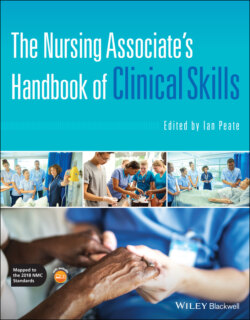Читать книгу The Nursing Associate's Handbook of Clinical Skills - Группа авторов - Страница 50
Introduction
ОглавлениеEngaging in nursing implies that you have a commitment to caring for your patients and clients and to caring for yourself and that you possess a wider desire to care for the well‐being of others and communities. Caring cannot exist without the sharing of information and feelings, and the very close relationship between the nursing associate and their patient is no different. To establish this close relationship requires that the nursing associate be able to confidently display interpersonal and relationship skills in all aspects of care. The Nursing and Midwifery Council (NMC) (2018a) standards state that ‘The ability to communicate effectively, with sensitivity and compassion, and to manage relationships with people is central to the provision of high‐quality person‐centred care’.
A therapeutic relationship has been defined as one which is perceived by patients to be caring, supportive, non‐judgemental and to offer a perception of safety from threatening events. The key elements of a therapeutic relationship can be described as respect for the person, receptivity which involves good listening skills, empathy and self‐awareness of one’s own skills and limitations. Figure 3.1 demonstrates the varied aspects of what is considered to encompass the therapeutic relationship.
